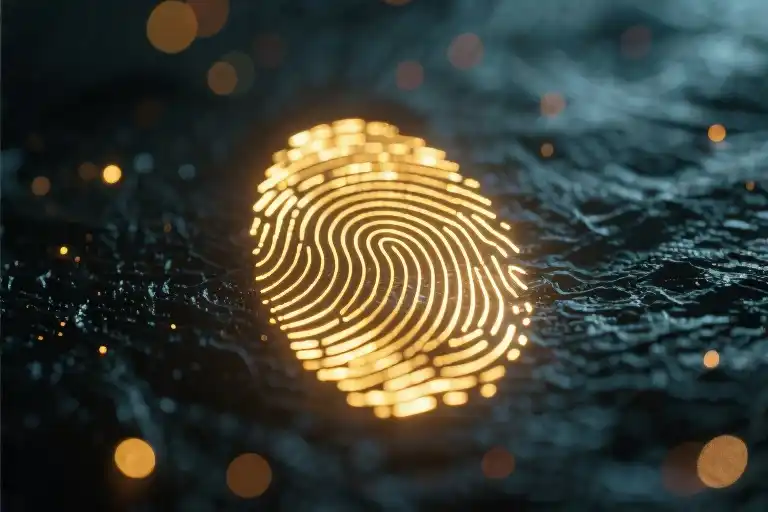Some loves burn like writing on paper set aflame—the more intense they are, the faster they vanish. She loved you as if counting down to doomsday, like the world’s end was tomorrow’s alarm clock. Now you understand: the deepest imprints are often left by those who stayed the shortest.
Her love wasn’t the gentle kind that lingers in the background. It was a supernova—brief, blinding, and impossible to ignore. When she kissed you, it wasn’t just lips meeting skin; it was poetry composed in the space between breaths, each syllable etched into your memory with the precision of a tattoo needle. Her laughter? A seismic event that made glasses tremble on tables and strangers turn their heads in crowded rooms.
What made her unforgettable wasn’t perfection—it was the glorious contradiction of her being. The way she could dismantle your defenses with one glance yet fumble with her own vulnerabilities like a child holding fireflies for the first time. She loved recklessly, as if gravity were a suggestion rather than a law, pulling you both into orbit around some unnamed star.
This is the paradox of unforgettable love: the people who mark us most deeply often do so precisely because they weren’t meant to stay. Like a comet streaking across the night sky, their very transience becomes part of their brilliance. The fingerprints they leave aren’t on your skin but on your soul—invisible to everyone except you, lingering long after the last goodbye.
You’ll find her in unexpected places years later. In the way your body still tenses at a certain song’s opening notes. In the involuntary pause before you answer when someone asks if you’re over her. These aren’t just memories—they’re emotional muscle memory, reflexes your heart learned without your permission.
Perhaps this is why short-lived loves haunt us most: they remain forever suspended in possibility, like a sentence cut mid-
Her Presence: A Story Written in Flames
She kissed like she was composing poetry with her lips—each movement deliberate, each pause weighted with unspoken stanzas. You never quite deciphered the language, but your body memorized its rhythm like an ancient chant. This was her way of loving: intense, fleeting, and utterly unforgettable.
There was a reckless radiance to her that defied logic. She could shatter your heart with one careless phrase, then gather the broken pieces to construct something breathtaking—a mosaic of vulnerability and strength. “You see,” she’d whisper, tracing the cracks with her fingertips, “sometimes light enters better through fractures.” Her contradictions were her magnetism: the woman who taught you love could conquer gravity would suddenly vanish for days, leaving you suspended mid-air.
I remember one humid August night—the kind where the air clung to your skin like a second layer. We’d fought earlier about something trivial, the tension thickening until she suddenly pulled me into the dim kitchen. Without a word, she dipped her finger into strawberry jam and drew a lopsided smile across my palm. “There,” she said, licking the sweetness from her thumb, “now you have to forgive me.” The jam dried sticky between my fingers for hours afterward, a tangible reminder of how effortlessly she dissolved anger into tenderness.
Her laughter was another force of nature—unrestrained, bodily, erupting without warning. She’d throw her head back with such abandon that chairs would wobble, drinks would spill, strangers would turn and instinctively smile. Once, in a crowded bookstore, she laughed so hard at a scribbled margin note that the barista comped our coffees just “for spreading joy.” Those moments felt like catching sunlight in your hands: too bright to look at directly, too warm to hold forever.
What made her unforgettable wasn’t perfection—it was her flawed, dazzling humanity. The way she’d sing off-key in the shower but refuse to stop. How she’d burn every attempted meal yet present the charred remains with theatrical flair (“Behold! My culinary abstract expressionism!”). Even her silences spoke volumes: leaning against you on the couch, her fingers absently playing with your shirt buttons as if trying to decode the language of your heartbeat.
She loved like someone counting down—each touch, each glance weighted with the unspoken awareness that nothing gold can stay. Maybe that’s why her presence imprinted so deeply: we instinctively hold tighter to things we sense are slipping away. When she danced, it was with her whole body; when she argued, her passion could shake walls; when she loved, it was with the ferocity of a woman determined to leave fingerprints on your soul before the world ended.
And oh, how those fingerprints remain. Not as scars, but as invisible ink—only visible when held at certain angles in certain lights. The way I still pause before opening strawberry jam jars. How my body automatically shifts left on sidewalks, still making space for a ghost. Muscle memory is a stubborn archivist, preserving what the conscious mind tries to release.
(To be continued…)
Her Departure: A Stage Gone Dark
Most exits in life happen like watercolors left in the rain—gradual, inevitable, their edges softening until you can’t recall when the picture truly faded. People become absences you adjust to, like furniture rearranged in a familiar room. But her? Her leaving struck like a theater blackout mid-performance—one moment blinding light, the next absolute darkness with the echo of unfinished dialogue hanging in the air.
You notice the remnants in mundane rituals. Holding elevator doors for strangers because she always did, her fingers dancing over the ‘OPEN’ button with theatrical flair. The way your phone still autocorrects ‘tomorrow’ to ‘tomorrow night at our spot’ three years later. These aren’t memories—they’re phantom limbs, reflexes your body refuses to unlearn.
New lovers notice first. Their hands brush your ear—that spot she used to trace while whispering half-true promises—and your involuntary shiver confesses what your voice won’t. You catch yourself mirroring her gestures: the head tilt when skeptical, that specific tongue-click when disappointed. The cruelest joke? You’ve become fluent in a language whose native speaker abandoned the conversation.
Psychologists call it procedural memory—the body’s stubborn archive of abandoned intimacies. Your muscles remember the weight of her head on your chest better than your mind recalls her face. The scent of jasmine still makes your breath hitch because her shampoo bottle left that imprint on your synapses. This isn’t forgetting; it’s fossilization, preserving her impact in the sedimentary layers of your being.
What makes these imprints different from ordinary heartbreak? The specificity. Generic loss fades into life’s background noise, but her particular brand of magic lingers in hyper-detailed vignettes: the exact pressure of her thumb smoothing your furrowed brow, the way she’d hum off-key in grocery store aisles. These aren’t ghosts—they’re living tattoos on your nervous system.
The paradox? The very intensity that made her unforgettable also made permanence impossible. Like catching lightning in a jar, the container would always shatter. Yet perhaps that’s why these traces persist—not despite the brevity, but because of it. The human soul has a peculiar habit of preserving what it can’t keep.
So you carry these fragments—not as burdens, but as proof that some collisions change our orbit permanently. The stage lights may have cut abruptly, but the performance rewired your circuitry. And somewhere between muscle memory and metaphor, between holding elevator doors and flinching at jasmine, you realize: the brightest flames often leave the most persistent shadows.
The Science Behind Unforgettable Love
Certain encounters imprint themselves deeper than others. The way she left—not with a slow fade but a sudden severance—created a psychological phenomenon far more persistent than ordinary memories. This isn’t just poetry; neuroscience confirms why unfinished love stories haunt us longest.
The Zeigarnik Effect: Your Mind’s Incomplete File
Russian psychologist Bluma Zeigarnik discovered our brains prioritize unresolved tasks. Like an unsent text draft or interrupted movie, relationships ending without closure become cognitive “open loops.” Her abrupt departure left:
- Unanswered questions (“Why that perfume sample still sits in your glove compartment”)
- Unfulfilled rituals (Your thumb still hovers over her favorite pizza order)
- Frozen moments (That song’s bridge forever tied to her halfway-out-the-door posture)
This mental tension explains why you remember her grocery list better than your own. The brain replays unfinished scenarios seeking resolution—making her ghost more vivid than living partners.
Sensory Landmines: When Smells Betray You
Harvard research confirms scent as the strongest memory trigger. Her shampoo wafting from a passerby doesn’t just remind—it transports:
- Olfactory hijacking: The amygdala processes smells and emotions simultaneously
- Time collapse: One whiff of jasmine and you’re back pressing her damp hair into hotel pillows
- Body memory: Your palms sweat before conscious recognition—like knees jerking at doctor’s taps
These involuntary reactions aren’t weakness; they’re proof of extraordinary neural wiring. That cologne aisle panic attack? Simply your limbic system faithfully executing its biological purpose.
Muscle Memory: When Your Body Keeps Score
Columbia University studies show repetitive intimacy alters motor pathways. Her imprint manifests physically:
- Sleep position (The left side stays empty years later)
- Driving routes (Your hands still turn toward her old apartment)
- Vocabulary (Adopting her phrases like borrowed sweaters)
These aren’t choices but neuromuscular adaptations—your cells remembering what your mind tries to forget. Like phantom limb syndrome for vanished love.
Rewiring the Unforgettable
While time doesn’t erase such imprints, research suggests these methods integrate them:
- Completion rituals (Writing unsent letters then ceremonially burning them)
- Sensory overwriting (Pairing her signature scent with new positive experiences)
- Behavioral substitution (Training new neural pathways through changed routines)
Her fingerprints on your soul needn’t be erased—recognize them as evidence you once loved in all caps. Now turn the page; the next chapter deserves bold ink too.
The Lingering Touch: When Love Leaves Its Fingerprints
That final question lingers in the air like suspended rain – why do you still practice saying “I’m fine” to empty spaces? The answer pulses beneath your skin, in those invisible grooves where her touch once resided. You’ve become an archaeologist of intimacy, collecting traces of her presence long after she stopped leaving them.
The Ghost in Your Reflexes
Muscle memory operates beyond conscious control – that’s why your hands still reach for her side of the bed in sleep, why your ears perk at laughter that sounds nothing like hers. Science calls this procedural memory, but your body knows it as the unforgettable love that rewired your nervous system. Each accidental reflex whispers:
- Your fingers still twitch to tuck imaginary hair behind her ear
- Your nostrils flare catching vanilla in a crowd (she never wore vanilla)
- Your ribs ache where she used to press her forehead during storms
These emotional writing goldmines aren’t metaphors – they’re physiological truths. The cerebellum doesn’t care that she’s gone; it replays what the heart can’t forget.
The Paradox of Invisible Marks
Her intense short-lived love did exactly what she intended – left fingerprints on your soul that no amount of scrubbing removes. Not the clean, looping kind from romance novels, but messy smudges that tell truer stories:
- Thumbprint (left clavicle): From when she steadied you laughing too hard at her terrible joke
- Index swirl (right palm): Where she traced “stay” before choosing leave
- Pinky impression (lower back): The ghost pressure of her pulling you closer in sleep
These aren’t scars but living tattoos, changing hue when it rains or when certain songs play. They prove what psychologists confirm – some people leave a permanent mark precisely because they never promised permanence.
The Museum of Almost
You’ve curated an entire exhibition from her remnants:
- Gallery 1: Half-finished conversations (“What if we…”)
- Gallery 2: Clothing tags she never removed (size small, always)
- Gallery 3: The way strangers’ hands feel wrong (too dry, too warm)
This isn’t about nostalgia – it’s about recognizing how love like the world is ending etches deeper than forever-love ever could. The German language has sehnsucht for this: longing for something that never truly was.
The Unanswerable
So you keep asking air questions:
“Why do I still…”
“Do you ever…”
“Was any of it…”
The silence replies in her voice. And perhaps that’s the final fingerprint – not on your skin, but on your very way of questioning. After all, how to describe a reckless but radiant person except through the cracks they left in your armor?
You’ll find new loves, different loves. But none will make you check for invisible ink on your hands before touching them. None will turn your body into a seismograph tuned to one specific frequency. That privilege belongs to the woman who loved you like there were no tomorrows – and was right.





